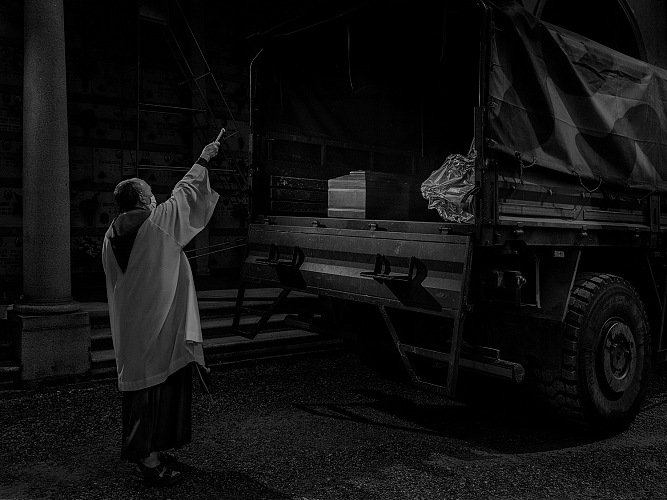The dark side of agribusiness
On GM cultivation, on the benefits that could be brought to the agricultural sector and on the possible environmental and interconnected health risks have been discussed for some time. And in the face of a deeply divided public opinion, the European Parliament still does not seem to know exactly how to move, authorising in fact the GM cultivation, but leaving the decision whether to accept transgenic fields or not to the individual Member States.
The organisation of the matter of GMO in Argentina is very different, for about the last twenty years it has become a sort of open-air laboratory for multinational companies in the agribusiness. In 1996, the government in fact approved in just three months the cultivation of transgenic soy and the use of the herbicide glyphosate on GM crops resistant to herbicide, without conducting any internal investigation, but relying, as the only scientific evidence, on the research published by the Monsanto Company. This allowed Argentina to become in a very short time one of the major producers of transgenic soybeans. Today the hectares cultivated with GMO covers an area of 28 million hectares and, only in 2012 two hundred million litres of agro-toxic were released on 21 million hectares, i.e. about 60% of arable land. There has been an excessive use of pesticides and herbicides that only recently are beginning to show the darker and more terrifying side. A side that the photographer Pablo Ernesto Piovano shows us with his most chilling grimace.
The images gathered in the exhibition El costo humano de los agrotóxicos – set up in the Ex Chiesa di San Cristoforo, , like all the other exhibitions is part of the Themed Area: Food that Kills – it in fact shows us men, women and children suffering from rare malformations, skin diseases, cancer and serious respiratory problems precisely because of the indiscriminate use of pesticides. Hard images that hit the stomach, reassembling the profile of a true medical emergency that, according to accurate medical-scientific studies, now affects twelve million people, or one third of the population of the country. In some villages, over the past decade the incidence of cancer in children have tripled and malformations in new-borns have increased by 400%. However, in spite of current scientific evidence and medical care confirmation, still almost nothing has been done and, to date, there is no existing official systematic information on the theme. After all, you know, when corporate interests skim astonishing figures and they involve the economy of an entire nation, it is difficult for the people affected to demand their rights. Everything fades into the background. Everything becomes a mere collateral damage. [ S. B. ]
- - -
EL COSTO HUMANO DE LOS AGROTÓXICOS
by Pablo Ernesto Piovano
Ex Chiesa di San Cristoforo | 10-11 / 17-18 / 24-25 october 2015
admission fee: 10,00 € (valid for the visit to all other exhibitions)
– – –
[ INTERNAL RESOURCES ]
◉ FFE2015 on FPmag
[ EXTERNAL RESOURCES ]
◎ Food that kills
◎ Festival of Ethical Photography
◎ Pablo Ernesto Piovano
published on 2015-10-24 in NEWS / EXHIBITIONS
FFE FFE2015 PabloErnestoPiovano StefaniaBiamontimore in EXHIBITIONS
categories
EXHIBITIONS CONTEST WORKSHOP EVENTS MELTINGPOT BOOKS PORTFOLIO VIDEO ONGOING THEMATICPATHS YTOI OPINIONS FPART COVER READINGIMAGES SMARTFOLIO FPBLOG FPLAB
recent news
FPmag
editor in chief Sandro Iovine | sandro.iovine@fpmagazine.eu - senior writer Stefania Biamonti - web developer Salvatore Picciuto | info@myphotoportal.com - linguistic coordination Nicky Alexander - translations Nicky Alexander, Rachele Frosini - contributor Davide Bologna, Mimmo Cacciuni Angelone, Laura Marcolini, Stefano Panzeri, Pio Tarantini, Salvo Veneziano - local Lazio correspondent Dario Coletti local Sardinian correspondent Salvatore Ligios - local Sicilian correspondent Salvo Veneziano - editorial office via Spartaco, 36 20135 Milano MI | redazione@fpmagazine.eu - phone +39 02 49537170 - copyright © 2015 FPmag - FPmag is a pubblication of Machia Press Publishing srl a socio unico, via Cristoforo Gluck, 3 20135 Milano MI - VAT no. 07535000967 C.F. (TAX code) 07535000967 - Copyright © 2015 FPmag - Registered at Tribunale di Milano No. 281 on the 9th September 2014















































